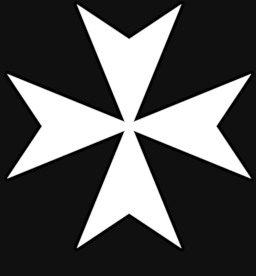
(Background Scene) - Twilight and the Friar Discuss the Crucifix
Preliminary Author's Note:
I was listening to the Skillet song Salvation while out driving the other day. The introduction – or more precisely the intro section of the song from the delux album – reminded me that early on in the story I’d planned on an interaction between the Friar and one or more of the main characters about his crucifix.
After all, without context the crucifix seems… weird at best. It is, after all, a picture of a guy nailed to a cross and in visible agony. Without the story behind it, this is bound to raise questions.
I never got around to writing it back in the day for reasons I don’t exactly recall. Probably I was testing the waters of seeing how readers would react to Friar Jacques talking about theology, and in time I just forgot to do it.
However, it would make sense for such a scene to happen, even if only offscreen, because realistically one of the ponies would ask about it once she got a good look at the crucifix. It would be weird not to.
This serves to give some very important insight into Jacques’ character. His very personal relationship with God – as has been established from the beginning – is central to his entire motivation. It is literally the reason he was willing to come to Equestria.
Thus, whatever one may feel about his faith, it is of tremendous value to the reader to see things from his perspective and understand how he sees the world (on top of being a good habit to get into in general, as it helps us not ‘otherize’ people who may think differently than us).
I decided to write the scene up with Twilight asking him about it, probably at the library or at the Apple family homestead, since Twilight out of all of them is the most inquisitive (except maybe Pinkie, but… no. Not for this scene).
The scene is not a complete scene, but rather it picks up with Twilight finally getting the courage to ask the friar about the crucifix. On one hand, she’s nervous because she suspects it may be deeply personal, and because, again, the crucifix seems very bizarre without context. On the other hand, she knows he’s a good man, and gives the benefit of the doubt that he must have a legitimate reason for carrying such an item. The Author’s Note at the end contains some further musings on symbols and what they reveal about a culture and its values.
This is more on-the-nose than some, as it’s directly theological, but… frankly, if theology bothered you, you probably would have stopped reading A 14th Century Friar long ago.
Again, even if you hold little (if any) agreement with Jacques’ beliefs, I hope you find it an interesting window into what many people believe, and I hope that, if nothing else, you find yourself finishing this chapter with a greater insight into Friar Jacques his faith.
“Friar Jacques?” asked Twilight, her voice hesitant.
“Yes, Lady Sparkle?” replied the old man, looking up from his book.
The unicorn flushed. “Please, Friar, you really can just call me ‘Twilight.’”
Chuckling sheepishly, he replied, “Yes, I know, Twilight, but old habits die hard for this old man. I am grateful for your patience.”
“Of course,” she smiled, feeling more at ease in the humble presence of the friar. “I… I have maybe a weird question. You don’t have to answer if you don’t want to, but… um… I’d appreciate it if you did.”
“Name it,” Jacques said, putting aside his book to give her his full attention.
“It’s just… you’re clearly a very kind man…”
“Thank you.”
“… and I’m sure there’s a good reason for it, but…” stirring up her courage, she pointed to the cross that hung on a chain around his neck, “… why does your religious medallion have a guy nailed to a wooden beam and wearing a crown of spikes?”
Jacques blinked rapidly, seeming taken aback by the question. Then he gave a rueful smile and said, “I suppose that would seem… macabre without proper context. Thank you for asking and not simply assuming the worst of me.”
“Of course,” she smiled.
“You say ‘of course,’ but there are many who jump to conclusions rather than seeking understanding. Such conclusion jumping can lead to… regrettable ends, as when I assumed the worst of Spike without knowing the truth.”
Twilight winced. “To be fair, from your perspective it was entirely reasonable.”
“Perhaps, or perhaps I should have read the reactions of the others in the room better. My point is, you give me the benefit of the doubt, and it is to your credit that you do so.”
“Well,” Twilight said, feeling awkward from his praise, “thank you.”
Jacques nodded, then began his explanation. “The context lies in this, that the heart of love is a willingness to sacrifice for the good of the beloved. Parents sacrifice time and energy so their children may grow up with direction, support, and guidance. A soldier sacrifices for his homeland by braving the dangers of the battlefield. A man who loves himself – in a healthy way, recognizing that his life is a gift from above – may sacrifice the pleasure of food to grow healthier, or endure the pain of labor so he may be fit and disciplined. The greatest love, of course, is to be willing to lay down one’s life – whether in a lifetime of service or in a righteous death – to safeguard another.” He held up the cross. “This crucifix – the cross with the image of the Corpus upon it – is a reminder of such total love.”
He gestured to a heart motif carved into the wall nearby. “Your folk commonly use the heart in your symbolism. A representation of love, yes? But based on my own visions upon entering this world, I cannot help but wonder if it also hearkens back to the sacrifice of the Source and the coming of the Fire upon your world.”
“That’s true,” acknowledged Twilight. “That’s why some hearts – especially in shrines – are portrayed as hearts of fire. It’s in reference to the Source and the Fire. Well… that and to Hearthswarming with the peace between the Tribes and the Founding of Equestria.” Seeing his confusion, she briefly explained the Hearthswarming tale.
Jacques nodded as she finished. “Doubtless an echo of the great sacrifice of the Source and the Fire that followed. Yet, if this is so, then mightn’t the heart of fire be seen as macabre to those who do not know the tale? After all, the Source was chained and burned alive, though not guilty of any evil – a willing sacrifice to expiate the sins of the world. A gruesome death, one which might seem bizarre to commemorate if not for the greater context of the triumph over sin and death, yes?”
It was Twilight’s turn to sit back and blink rapidly, taken aback by the question. “I guess… I guess I’d never thought of it that way. Wow.” She chuckled. “It really does seem macabre out of context, doesn’t it?”
“And yet in context, it is a powerful expression of undying love,” the Friar declared. “In context it is a memorial of sacrifice.” Holding up the cross, he looked with mingled joy and sorrow upon the image engraved upon it.
Or, really, on who the image represents, thought Twilight. Like a photograph of a loved one, kept ever close.
When Jacques spoke again, she could tell the words he spoke were not of his own writing.
“There was in him no stately bearing to make us look at him,
nor appearance that would attract us to him.
He was spurned and avoided by people,
a man of suffering, accustomed to infirmity,
one of those from whom people hide their faces,
spurned, and we held him in no esteem.
Yet it was our infirmities that he bore,
our sufferings that he endured,
while we thought of him as stricken,
as one smitten by God and afflicted.
But he was pierced for our rebellion,
crushed for our sins;
upon him was the chastisement that makes us whole,
by his stripes we were healed.
We had all gone astray like sheep,
each following his own way;
but the Lord laid upon him
the guilt of us all.”
When the friar looked up again, there were tears in his eyes. “Think on this, young Lady Twilight: the Son of God, the very Author of Life Himself, came down to the earth, being born in poverty and scorn, living as a slave to all. He healed the sick and injured, forgave sins, freed those tormented by demons, and proclaimed liberty to captives. He committed no sin, yet took onto himself all our sins. That is what redemption means, you know – to pay off the debt of those held in bondage that they may be released. Yet he was put to death by the people he came to save. He allowed us to put him to a cruel death, nailed to a tree and crowned with thorns so that we may be free of our sins.”
His gaze returned to the cross as he continued, “Those who do not know may look at this image and think it only the visage of a wretched man suffering a cruel death. But those know him, as I have come to know him, see the Man who is utterly in love – utterly is love – pouring out his life, his very self, so that sinners like me may liberated from the chains of death. He died as a slave to set the slaves free.” His eyes met Twilight’s yet again, piercing and sad and joyful. “So you see, just as the hearts your folk display remind us of love, of the sacrifice of Love, I keep this crucifix ever with me so that I may always remember what Love has done and continues to do for me. Like a sheep I so often stray away…” his voice broke, “yet the Lord laid on him my sins and the sins of us all.”
Twilight found herself crying as well, and she knew she would never look at the heart motifs of her homeland the same way again. “Thank you, Friar,” she said at length when she found her voice again. “I think I understand you a lot better now.”
“I’m glad,” smiled the old man. Then, holding up the book he was reading so she could see the cover, he said, “Speaking of understanding, I was hoping you could explain… this.”
Twilight had to squint to see the title. To her horror, she realized the manuscript was, in fact, one of her record books in which she’d attempted to make sense of ‘Pinkie Sense.’
Feeling a nosebleed coming on, she rose, saying, “I’m going to fetch two cups of coffee and two glasses.”
“Glasses of what?” he asked as she left the room.
“Based on past experiences trying to explain it to new Ponyville residents? A dram of 929 Scotch. While I’m up, can I get you anything?”




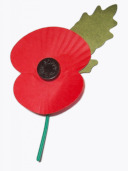


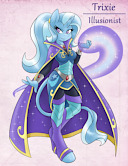

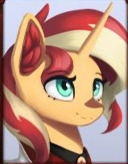

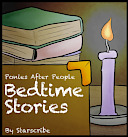

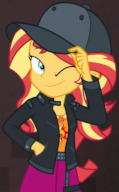




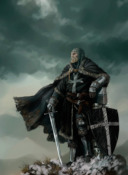




You know, as a Protestant, on this day, I was just thinking about this very question. Was going to bother Destiny about it in fact.
You've done a lot of thinking on symbology, very good stuff. This is what I love to hear from an author, depths of thought on the most innocuous parts of their setting.
11212946
Glad you enjoyed it
Just saying: in his last will Zhukov requested an Orthodox burial but the Soviet leaders apparently ignored this request. He was famous for his lack of party discipline, which was arguably one of the reasons for his fall from power. Some might even say he wasn’t really a communist at all.
Brilliant work. Ironically, this didn't come off as preachy. Just a passionate, sincere, open exchange of cultural perspectives. Would that this sort of thing were much more common in our own world.
On a more irreverent note:
Lovely bit of socio-symbolic analysis. Thank you for it.
11213005
Orthodox worship was actually fairly common in the Soviet Union for largely practical reasons: Prior to the rise of the party, everyone was Orthodox, and that isn't the story of thing that even Vladimir Ulyanov, er, Lenin could undo with a command, no matter how much Marx he read. The Soviet State was officially atheist, but with no way to effectively enforce that rule, the real stance was, "Keep it to yourself and don't make a scene." Anyone "caught" was certainly punished, but that only required a minimum random frequency to remind the proletariat who was in charge.
That certainly explains why Zhukov's request was ignored; it was necessary to maintain the facade.
As to the story being recounted, we have here another reminder that the only way Friar Jacques could be better would be if he were Father Jacques. But then, maybe not; certainly, a priest would bring a different perspective to the table, but not necessarily a superior one.
11213378
One of the other reasons, or so I’ve heard, is that during WWII the Soviets lost too much manpower so they had to do literally everything to recruit as many soldiers as they could and keep their moral reasonably high, so they relaxed the control on religious matters, seeing that Orthodoxy still had a great deal of influence on lots of people and could certainly encourage them to go to war. In fact, the Soviet variant of communism itself was likely influenced by Orthodox christianity, as they both emphasized sacrifices, canonized their leaders and put saints into glass coffins, so these things might not be that incompatible after all.
11213398
Hm. That's a really interesting point.
An interesting explanation for Equestrian symbology (and on the more familiar stuff, as well).
It gets me thinking on the significance of Twilight's cutie mark. It's clearly a significant symbol (at least to Celestia), as it also appears on the Tree of Harmony, and her brother already had a similar mark before she earned hers. It would make sense that her brother's mark had Celestia keeping an eye on her, and her own mark's appearance prompting Celestia to take her under her wing directly.
On the surface level in their culture, it's the symbol for magic. That's Twilight's initial interpretation of her mark, and it's one that makes sense in context. But I think Celestia also saw it as a symbol of friendship or Harmony because of its connection to the Tree, and taken that as a sign that Twilight was the one she was looking for as an heir and as someone to save Luna.
I'm not sure how pervasive that symbol actually is, though. Does anyone remember seeing it around places that aren't Twilight's flanks?
11213005
Knowing Zhukov, that wouldn't surprise me. Wasn't aware he requested an Orthodox burial; crying shame the man who saved their country didn't have his last wishes granted.
11213178
I appreciate that feedback, thank you.
And the AJ comment got a chuckle out of me. Some may find it irreverent, but I don't; it's not mocking God, but is instead laughing about how that phrase might be heard differently in a very different world. The joke is about the situation, not the scripture.
11213378
Clarification, Friar Jacques is a priest. 'Friar' is within many religious orders how one addresses a priest (rather than, say, a religious brother who is not a priest), but calling them 'Father' is also the appropriate title (at least within the Church). He called Methuselah 'Father' because Methuselah was his superior. Priests typically call each other 'Brother' (or just by their names) when speaking to them directly. It's on the whole more complicated than that, but that's the short version.
11215138
I feel like it was somewhere else, but I don't remember for certain. I do think that the stars orbiting her mark grew in number at one point once she figured out the whole 'friendship' thing and leveled up to Alicorn.
11217809
And that is why you are the antiquarian, and I am the what, you thought I would make this easy for you?
Don't sell yourself short, Antiquarian. Your ability to take the trivial, inconsequential details, things which people like me would ignore – background filler, as you say – and make a whole history and lore out of them is one of the many things that make you a brilliant writer.
Thanks for writing.
While not a religious person, I very much enjoyed this tidbit, especially the addendum in Author's Note. It is very pleasant to see a creator who puts effort and attention into his work
11634127
Thank you kindly.